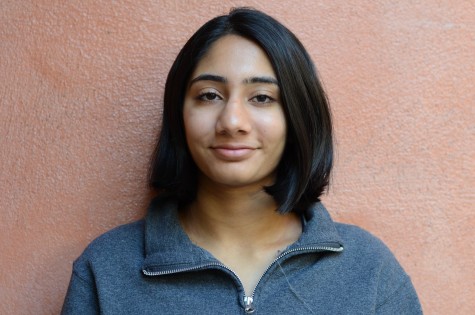Modern International Affairs students discuss Syrian refugee crisis
Now in its fourth year, the Syrian Refugee Crisis has become the largest refugee crisis since World War II as the number of refugees fleeing the country continues to increase exponentially.
An estimated 12 million Syrians have fled their homes since the outbreak of civil war in March 2011, fleeing from Syria to take refuge in neighbouring countries or within Syria itself. Some have fled to European countries, with Germany and Sweden receiving almost half of the applications.
The severity of the crisis has inspired a global response to help aid refugees. Various Silicon Valley-based companies have launched efforts to aid Syrian refugees, after being called to action by President Obama. Kickstarter, for example, has created a page where donations to the UNHCR can be made and Airbnb is providing shelter for those in impacted areas.
Though the U.S. has only accepted about 1,500 refugees since the start of the war in 2011, Secretary of State John Kerry announced last month that the U.S. would accept 75,000 refugees in the next fiscal year and 100,000 refugees in 2017. The U.S. has also provided $4.5 billion in aid to those affected by the conflict.
Modern International Affairs, a semester-long course taught by history and economics teacher Damon Halback, has not extensively covered the crisis itself but has taken a look into its causes.
“Our coverage of the refugee crisis has been tangential in that we are not examining the European response to it as much, but we are really engaged in an intense study of the roots of the crisis […] That being said, we did have a brief discussion in one of the classes regarding the various countries in Europe regarding their treatment of the refugees,” Halback said.
Shannon Hong (12), a student in the class, explains her view that the United States should welcome more refugees.
“I believe that the US should be accepting more refugees and creating a clearer path to immigration, and I think the best way, and the reason why, is because, it’s been really proven immigrants are the ones that really can power forward our economy, and that includes for Europe,” she said.

Kavya Ramakrishnan (12) is the managing editor of the Winged Post. This is her fourth year on staff, having previously held the positions of reporter and...
Maya Kumar (11) is the Features Editor for the Winged Post. This is her third year in Journalism and her favorite part is collaborating with fellow journalism...
Meena Gudapati (12) is the Editor-in-Chief of Harker Aquila. Her favorite part of journalism is making her humorous podcast "Get Skool'd" and writing interesting...


















![“[Building nerf blasters] became this outlet of creativity for me that hasn't been matched by anything else. The process [of] making a build complete to your desire is such a painstakingly difficult process, but I've had to learn from [the skills needed from] soldering to proper painting. There's so many different options for everything, if you think about it, it exists. The best part is [that] if it doesn't exist, you can build it yourself," Ishaan Parate said.](https://harkeraquila.com/wp-content/uploads/2022/08/DSC_8149-900x604.jpg)




![“When I came into high school, I was ready to be a follower. But DECA was a game changer for me. It helped me overcome my fear of public speaking, and it's played such a major role in who I've become today. To be able to successfully lead a chapter of 150 students, an officer team and be one of the upperclassmen I once really admired is something I'm [really] proud of,” Anvitha Tummala ('21) said.](https://harkeraquila.com/wp-content/uploads/2021/07/Screen-Shot-2021-07-25-at-9.50.05-AM-900x594.png)







![“I think getting up in the morning and having a sense of purpose [is exciting]. I think without a certain amount of drive, life is kind of obsolete and mundane, and I think having that every single day is what makes each day unique and kind of makes life exciting,” Neymika Jain (12) said.](https://harkeraquila.com/wp-content/uploads/2017/06/Screen-Shot-2017-06-03-at-4.54.16-PM.png)








![“My slogan is ‘slow feet, don’t eat, and I’m hungry.’ You need to run fast to get where you are–you aren't going to get those championships if you aren't fast,” Angel Cervantes (12) said. “I want to do well in school on my tests and in track and win championships for my team. I live by that, [and] I can do that anywhere: in the classroom or on the field.”](https://harkeraquila.com/wp-content/uploads/2018/06/DSC5146-900x601.jpg)
![“[Volleyball has] taught me how to fall correctly, and another thing it taught is that you don’t have to be the best at something to be good at it. If you just hit the ball in a smart way, then it still scores points and you’re good at it. You could be a background player and still make a much bigger impact on the team than you would think,” Anya Gert (’20) said.](https://harkeraquila.com/wp-content/uploads/2020/06/AnnaGert_JinTuan_HoHPhotoEdited-600x900.jpeg)

![“I'm not nearly there yet, but [my confidence has] definitely been getting better since I was pretty shy and timid coming into Harker my freshman year. I know that there's a lot of people that are really confident in what they do, and I really admire them. Everyone's so driven and that has really pushed me to kind of try to find my own place in high school and be more confident,” Alyssa Huang (’20) said.](https://harkeraquila.com/wp-content/uploads/2020/06/AlyssaHuang_EmilyChen_HoHPhoto-900x749.jpeg)



